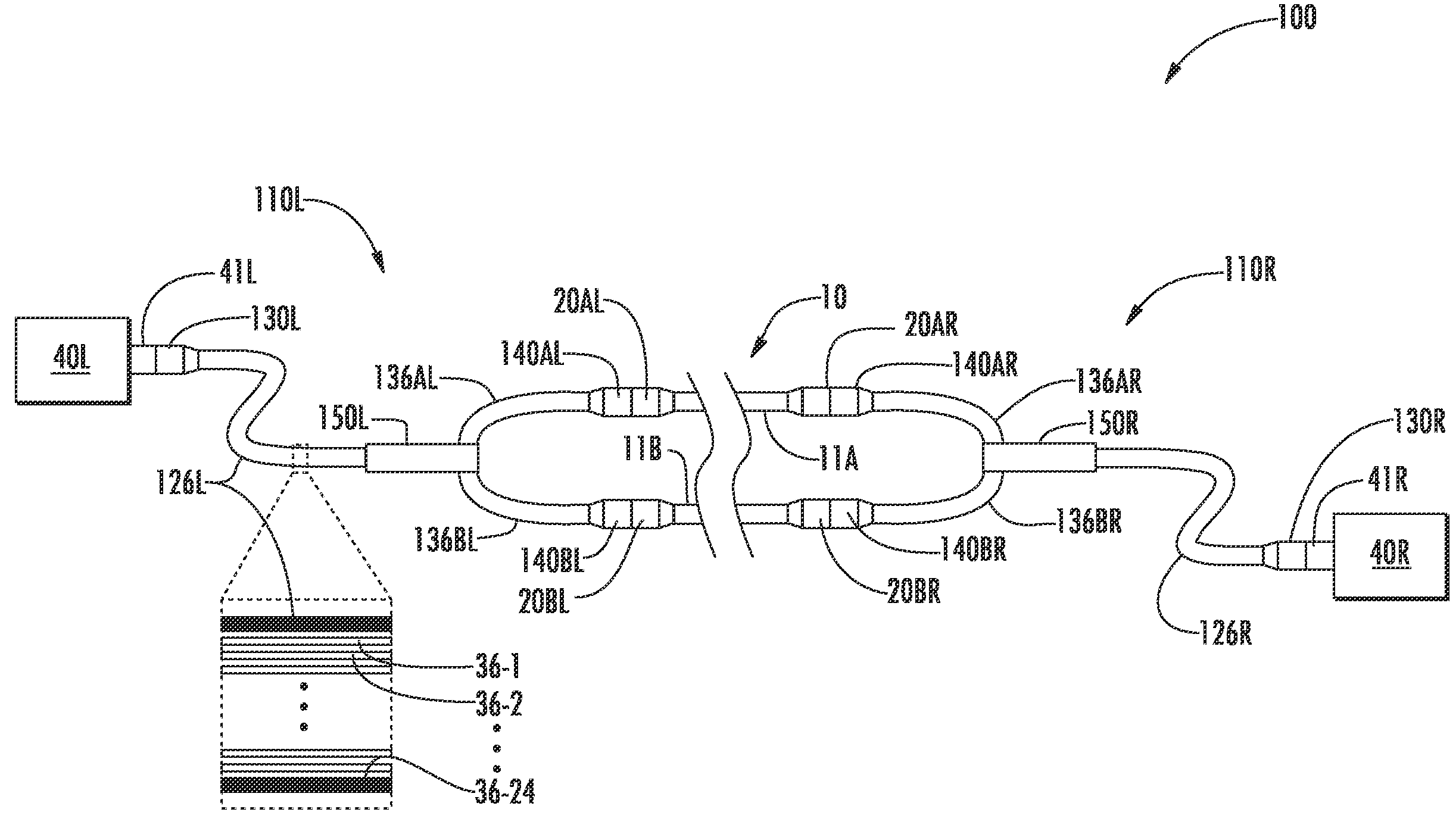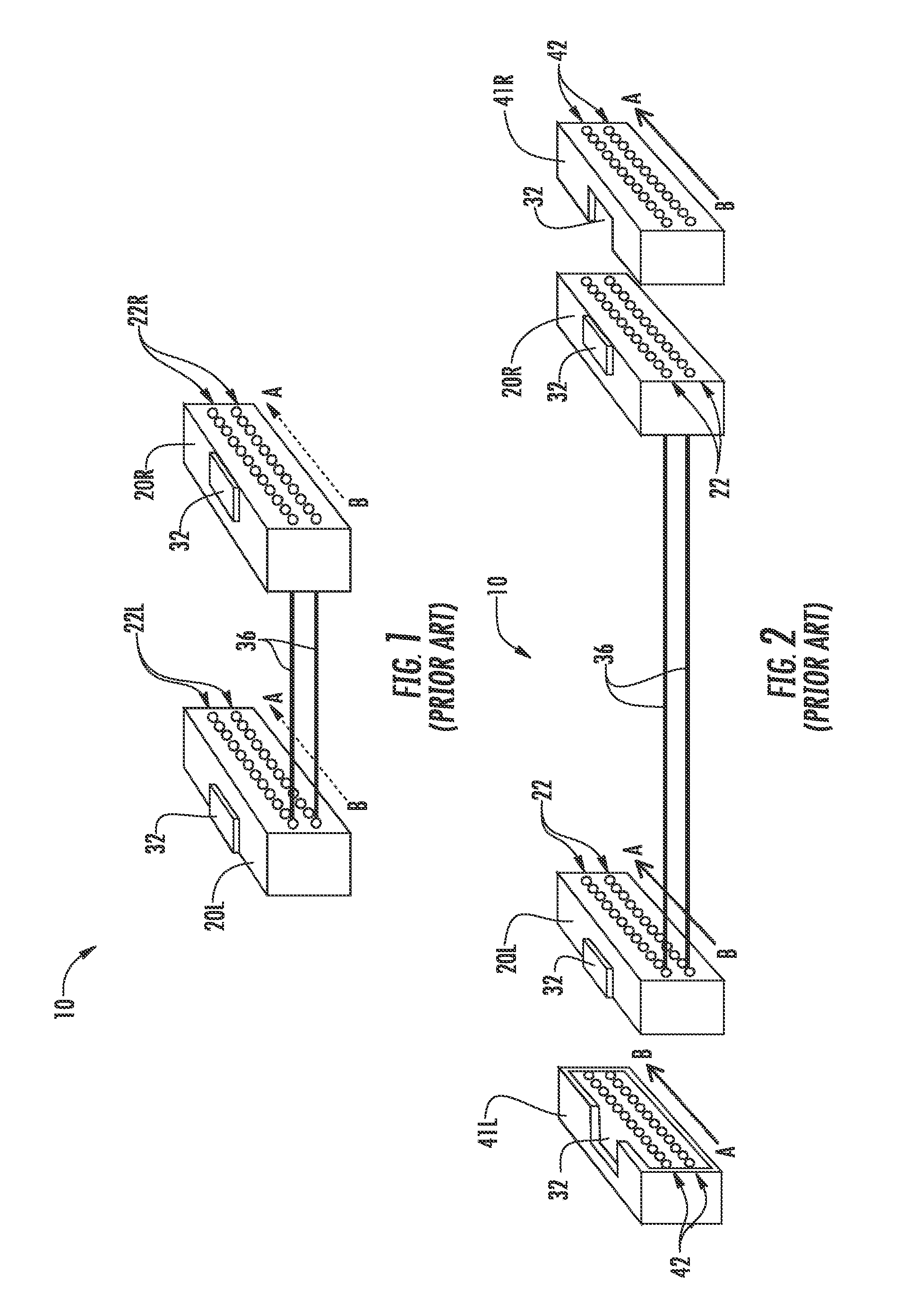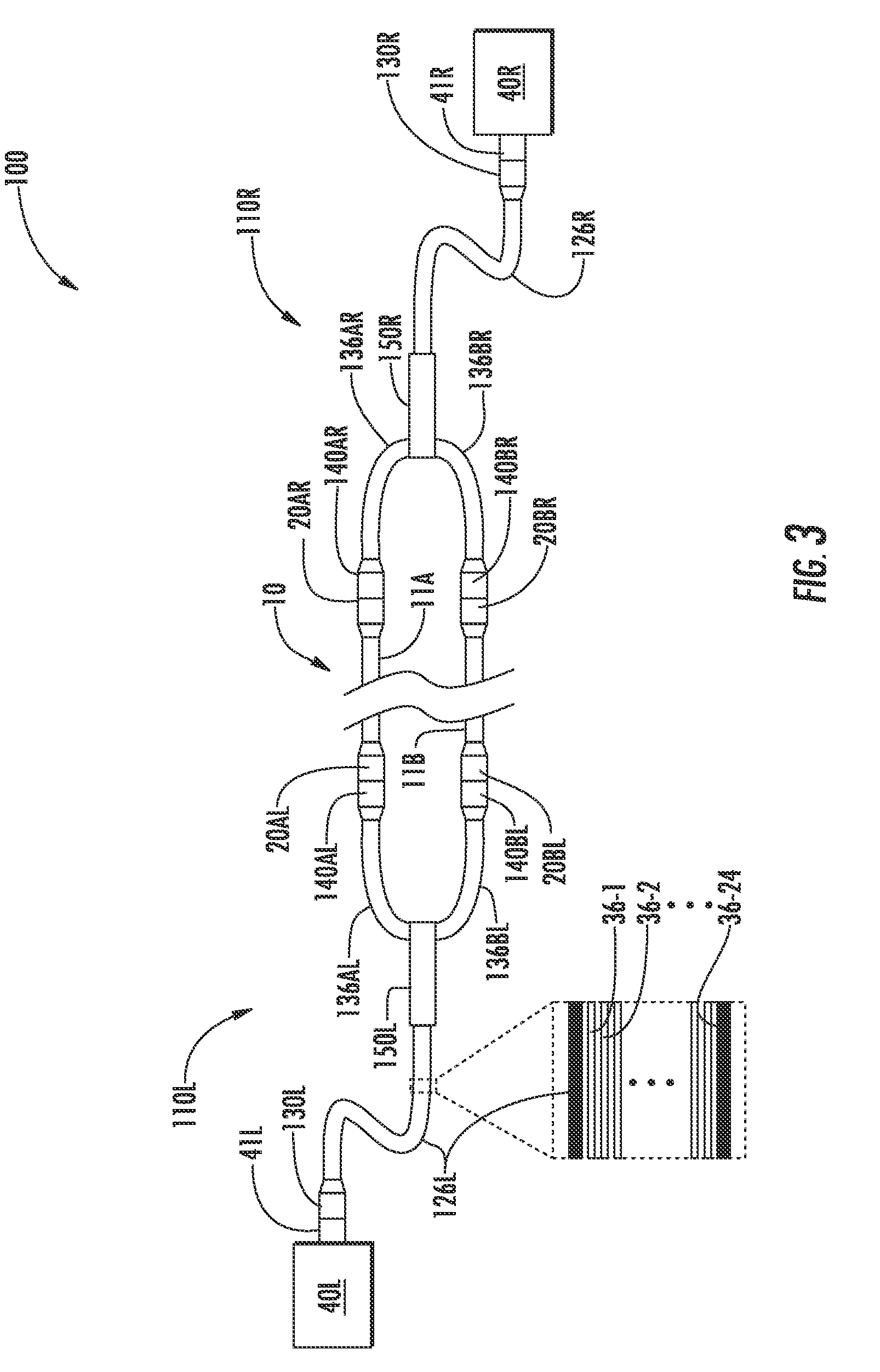Optical interconnection methods for high-speed data-rate optical transport systems
- Summary
- Abstract
- Description
- Claims
- Application Information
AI Technical Summary
Benefits of technology
Problems solved by technology
Method used
Image
Examples
Embodiment Construction
[0028]Reference is now made in detail to the embodiments of the disclosure, examples of which are illustrated in the accompanying drawings. Whenever possible, like or similar reference numerals are used throughout the drawings to refer to like or similar parts. The letters “L” and “R” in the reference numbers denote “left” and “right” to distinguish between the same or like parts in different sections of an apparatus, system, assembly or network, and are used in the same manner as “first” and “second” and thus are not intended as being limiting as to position.
[0029]It should be understood that the embodiments disclosed herein are merely examples, each incorporating certain benefits of the present disclosure. Various modifications and alterations may be made to the following examples within the scope of the present disclosure, and aspects of the different examples may be mixed in different ways to achieve yet further examples. Accordingly, the scope of the disclosure is to be underst...
PUM
 Login to View More
Login to View More Abstract
Description
Claims
Application Information
 Login to View More
Login to View More - R&D
- Intellectual Property
- Life Sciences
- Materials
- Tech Scout
- Unparalleled Data Quality
- Higher Quality Content
- 60% Fewer Hallucinations
Browse by: Latest US Patents, China's latest patents, Technical Efficacy Thesaurus, Application Domain, Technology Topic, Popular Technical Reports.
© 2025 PatSnap. All rights reserved.Legal|Privacy policy|Modern Slavery Act Transparency Statement|Sitemap|About US| Contact US: help@patsnap.com



